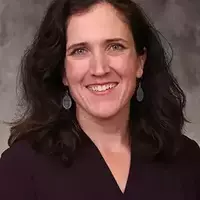Our Students: Earth Advocates
published Apr 11, 2017 3:00pmIn class, my students work with community experts to explore soil and water quality. They analyze the impacts of human activities on the surface of the earth. This includes exploring soil nutrients and contaminants like lead and analyzing stream chemistry. Our watershed is one of the top 10 most nutrient polluted of the 800 sub-watersheds in the Mississippi River Basin. Like Lake Erie and the Gulf of Mexico, C.J. Brown, regularly becomes choked with algae. Two of the last five summers, conditions turned toxic. This shut down swimming at the beach. This hurt our local economy and took away the only free place to swim. This is also heartbreaking.
More than 20% of all children in my county live in such poverty that they are food insecure. Children that suffer the most are hurt the most by a failure to protect and safely manage our earth and environmental resources. They are more susceptible to lead health issues, live closer to pollution from combined sewers, and live in food deserts. Each semester, Wittenberg students expand their positive presence in our community. A class soil lead (Pb) GIS project has expanded from mapping a grass lot to working with five community partners to test community gardens and develop outreach materials for at-risk neighborhoods. While this project and others like it will continue grow, it is still a losing battle if funding for science and environmental regulations decrease. Other places with more resources will emerge as necessary leaders, but in resource-scarce towns like mine, environmental justice issues will grow, and more people will suffer.Confronting the limitations of local problem solving has made me realize the importance of policy. Policies and budget decisions today, will impact our future for many years. Groups like the Bipartisan Climate Caucus suggest that evidence-based solutions are possible through liberal or conservative approaches. Making decisions based on science improves our resilience and safety. This semester I'm teaching earth advocacy as a part of my introductory geology and environmental science courses. I've also co-developed a module for other instructors: Helping Students Advocate for the Earth. Our planetary stability and availability of resources into the future requires supportive policy decisions. Students need the space to critically explore policy and budget decisions. It is not enough to be science literate if it does not translate to personal, community, or civic action.



![[creative commons]](/images/creativecommons_16.png)